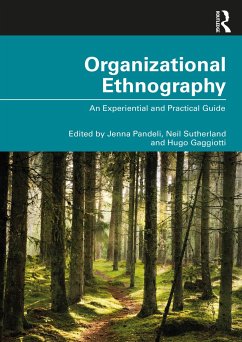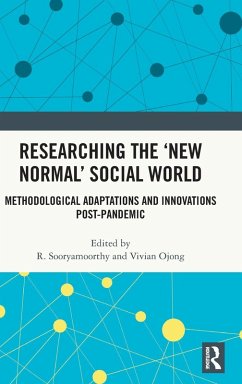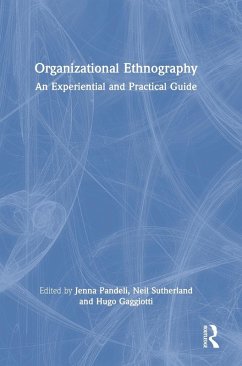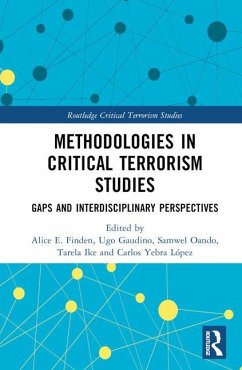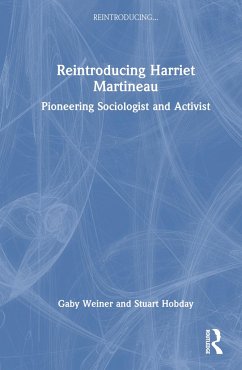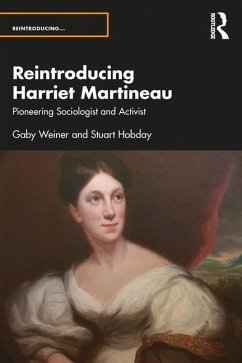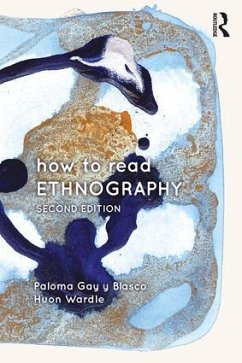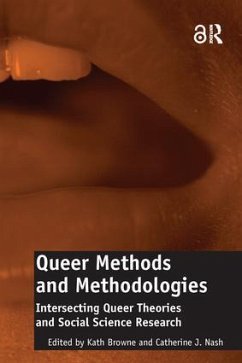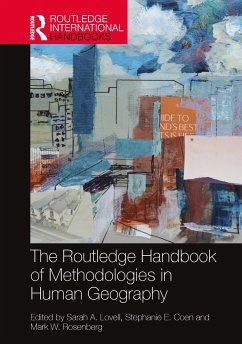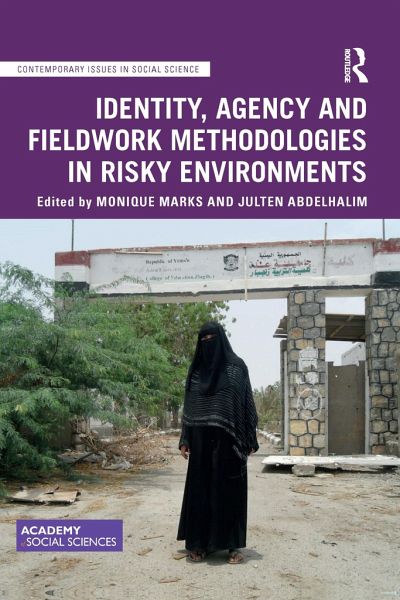
Identity, Agency and Fieldwork Methodologies in Risky Environments
Versandkostenfrei!
Versandfertig in 6-10 Tagen
45,99 €
inkl. MwSt.

PAYBACK Punkte
23 °P sammeln!
Bringing together a unique set of narratives from social scientists who have been situated in risky environments, this volume discusses the moral and ethical dilemmas of doing fieldwork in environments that are characterised by insecurity.These narratives are situated in the Global South, and the majority of the authors are themselves from the Global South, bringing both authenticity and originality to the scholarship in this book. Coming from the Global South can both facilitate and complicate navigating the complexity of doing research in places characterised by precariousness. The authors d...
Bringing together a unique set of narratives from social scientists who have been situated in risky environments, this volume discusses the moral and ethical dilemmas of doing fieldwork in environments that are characterised by insecurity.
These narratives are situated in the Global South, and the majority of the authors are themselves from the Global South, bringing both authenticity and originality to the scholarship in this book. Coming from the Global South can both facilitate and complicate navigating the complexity of doing research in places characterised by precariousness. The authors demonstrate how the 'morality of the moment' and indigenous sensibility is often more pertinent than formal ethical considerations as stipulated by universities and other institutions. The authors are refreshingly honest about their own identity dilemmas, their choices to exit the field prematurely, and the raw emotions that emerged in the process of doing fieldwork in these settings.
This book is likely to be instructive to young researchers entering into fields that are risky, often with little instruction or supervision prior to doing so. It is also an excellent resource for more seasoned researchers who might have had comparable experiences and are keen to reflect on such research journeys. It will be an invaluable resource for teaching qualitative research across a wide spectrum of disciplines.
This book was originally published as a special issue of Contemporary Social Science.
These narratives are situated in the Global South, and the majority of the authors are themselves from the Global South, bringing both authenticity and originality to the scholarship in this book. Coming from the Global South can both facilitate and complicate navigating the complexity of doing research in places characterised by precariousness. The authors demonstrate how the 'morality of the moment' and indigenous sensibility is often more pertinent than formal ethical considerations as stipulated by universities and other institutions. The authors are refreshingly honest about their own identity dilemmas, their choices to exit the field prematurely, and the raw emotions that emerged in the process of doing fieldwork in these settings.
This book is likely to be instructive to young researchers entering into fields that are risky, often with little instruction or supervision prior to doing so. It is also an excellent resource for more seasoned researchers who might have had comparable experiences and are keen to reflect on such research journeys. It will be an invaluable resource for teaching qualitative research across a wide spectrum of disciplines.
This book was originally published as a special issue of Contemporary Social Science.





